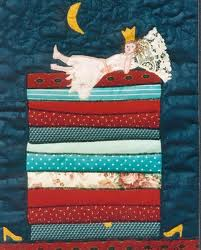It may be a bit unusual to quote Shakespeare in a handball article, but the events in Denmark over the last couple of weeks match this heading taken from Hamlet. Alternatively, one could find an appropriate story by Hans Christian Andersen to describe it, or one could simply refer to it as a ‘soap opera’.
During the course of a couple of weeks, Denmark found that most of the players on its famous women’s national team were on strike, so that the coach Jan Pytlick had to nominate mainly players without national team experience for upcoming critical games. The reason was that the Danish federation had announced cuts in compensation to the players. Then an external mediator was called in to assist in negotiations between the Federation and the Players’ Association. The negotiations broke down, and the federation started talking about abolishing their national team. Then the process was restarted, and finally a resolution was reached so that all the top 35 women players are now back on board again.
In the meantime, there had been quarrels between star players who were on strike and accused former teammates of a lack of loyalty because they did not want to strike. Gender issues due to unequal pay for the men’s and the women’s team became an issue. The Players’ Association wanted to try to join the Danish Labor Unions, and the general public started weighing in, sometimes calling the players ‘spoiled prima donnas.’ The Director of the Danish Federation spoke out, denouncing some of the statements that had been made, but openly spoke of a strong lack of trust between federation and players that supposedly went back more than 30 years to his days on the national team.
It may seem particularly strange to have this kind of commotion in a traditional handball power such as Denmark, with strong men’s and women’s national teams taking turns playing a dominant global role over the years. And the Federation has given the impression of being solid and competent. Only the occasional wild stories involving Anja Andersen have tended to create some waves on the otherwise calm seas. In the end, it seems that there was also a realization that matters simply had to be resolved, considering the relatively short time remaining to the women’s World Championship (incl. the preceding qualification games) and the 2012 Olympics.
In one way, however, the underlying issue of reduced financial compensation should not have come as a total surprise to the Danish handball fans and to the national team players. For quite some time now, it has been openly revealed and lamented that most of the top Danish men’s and women’s clubs are on shaky ground financially. Only upstart AG Koebenhavn, with a wealthy boss, who is also the main owner of Rhein Neckar Loewen, is the exception. Moreover, experts on sponsoring accused the Danish federation of acting in amateurish manner, and information also seemed to come out to the effect that the troubles of the Federation were in part related to a surprisingly mediocre TV contract.
If one looks at the principles involved, it seems that players who are paid by their clubs on a full-time basis really have no excuse for asking for a duplication of salaries when nominated for the national team. At the most, there should be a clause for some form of performance-related bonuses when the team wins medals or qualifies for the Olympics. In such cases there may be a legitimate claim for getting some share of the additional revenue that their successes bring to the Federation. Of course, some of the top players may in fact be part-time employees only, and if so the situation is a bit different.
It seems that the players need to be sensitive to the economic realities of society at large, from which the world of sports is not immune. And there should be something to the old tradition that playing on a national team should be seen more as an honor than as an opportunity for extra income. If not, there is a clear risk that people will indeed see the players as fitting into H.C. Andersen’s scenario of ‘princesses who are so spoilt that they can be bothered by a pea also under a layer of 20 mattresses’. And the Federation, which in a greatly successful handball country such as Denmark is expected to be wealthy or at least very professional, must take care to avoid reminding the public of another H.C. Andersen story, the Emperor’s New Clothes, which as you know revealed an embarrassing nakedness underneath it all.

